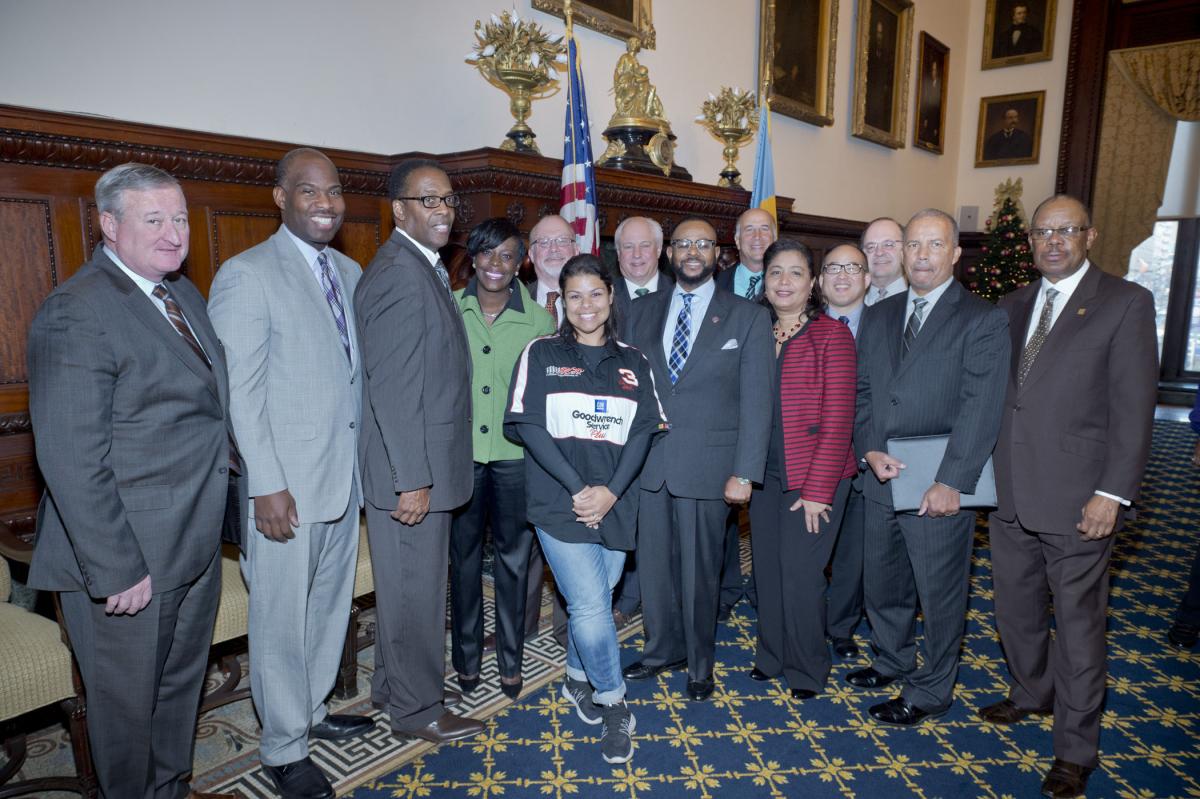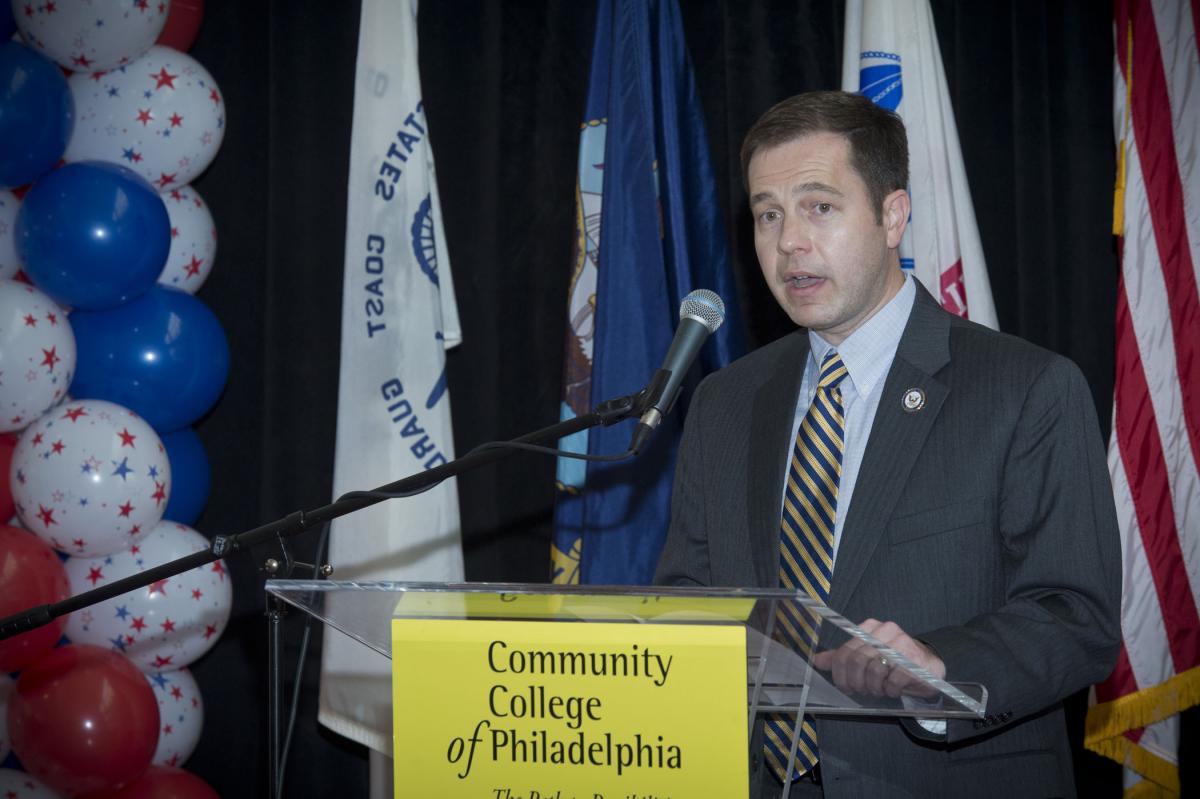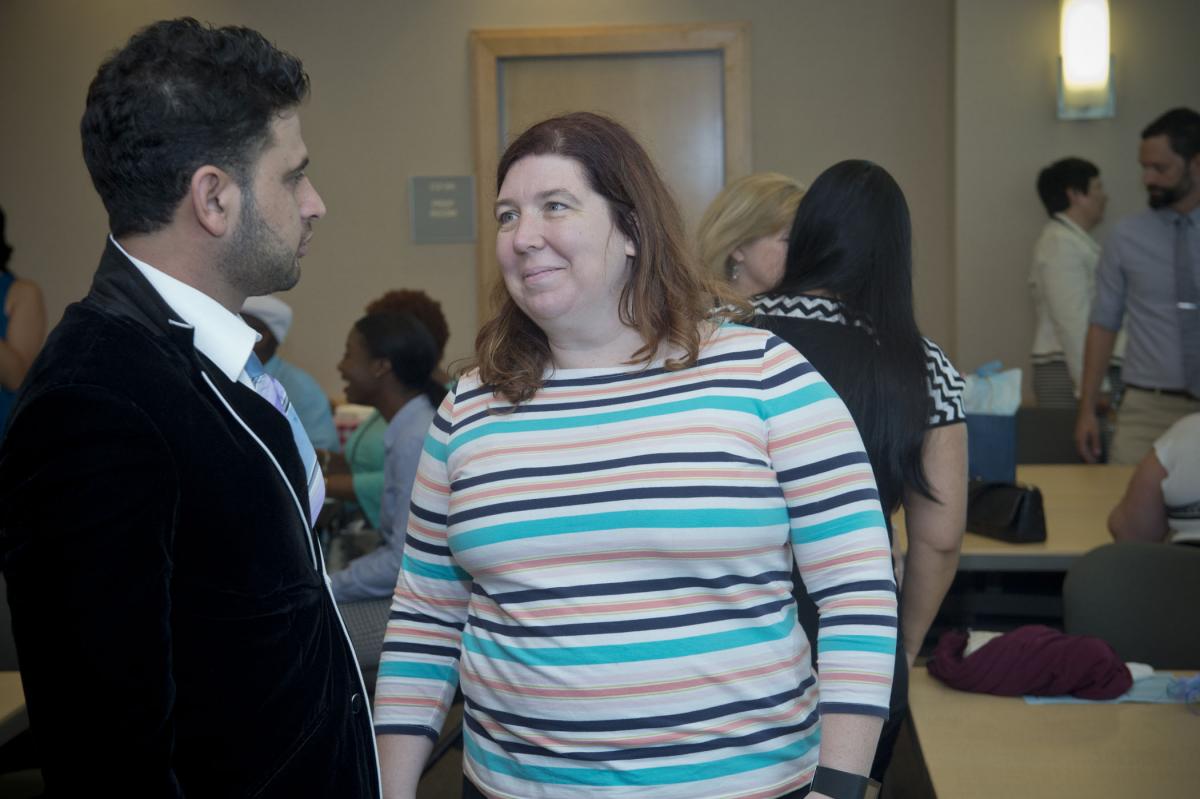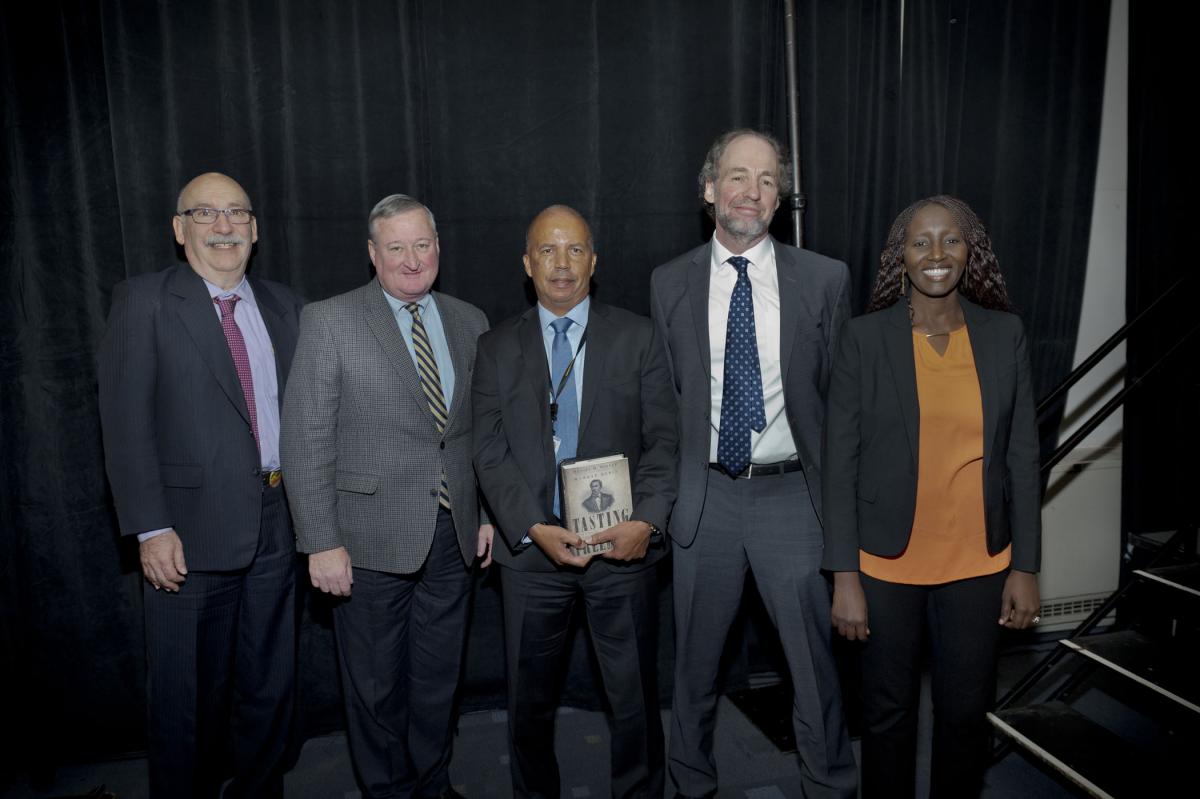Carole Haas Gravagno: Compassionate Citizenship in Action
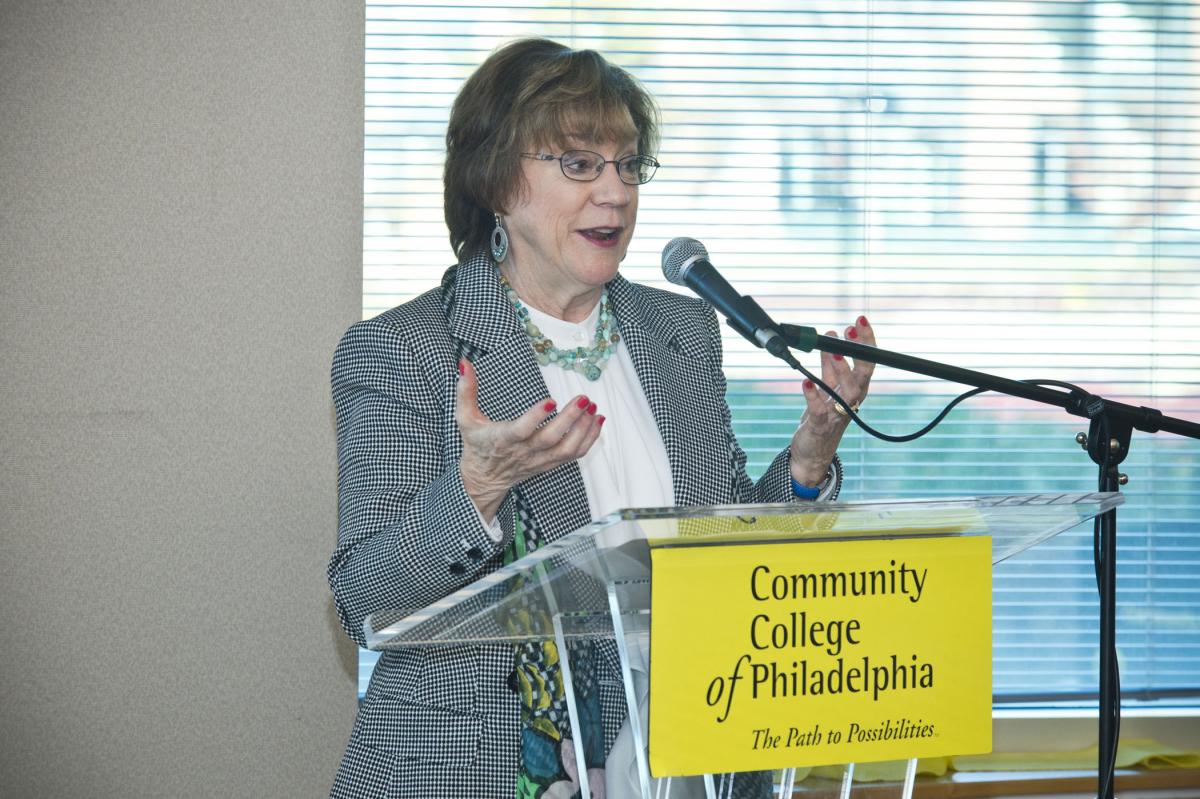
For Carole Haas Gravagno, responsible citizenship simply doesn’t mean living purposefully as an engaged, duty-bound member of society. Above all else, good citizenship requires compassion.
Delivering remarks focusing on challenges and solutions to bettering life in the Philadelphia region, Gravagno made the case for compassionate citizenship at the College’s 2016 Judge Edward R. Becker Citizenship Award breakfast at Community College of Philadelphia.
As the eighth Becker Award winner, Gravagno—a philanthropist, dedicated board member, volunteer, and mother who believes all children should have same opportunities as her own—brought to life examples of compassion in action as personified by the late Judge Edward R. Becker (1933-2006), for whom the award is named.
Judge Becker was a civil servant noted for his down-to-earth humility for upholding the highest standard of the law and for his compassion to his fellow man. Flora Becker, his widow, told the story of a time several years ago when the couple hosted Gravagno and her husband, Emilio, a double bassist for the Philadelphia Orchestra, for an unforgettable evening of conversation and music—Ed Becker playing the piano, Emilio Gravagno on bass.
Both women reconnected with an embrace before the Becker Award breakfast, and now count that magical night among their cherished memories. Just two months ago, Gravagno lost Emilio to cancer and personally felt the power of compassion from friends like Flora Becker and others, which “has been such a healing force,” she said.
A former elementary and high school teacher, Gravagno has devoted much of her time to supporting programs that introduce the transformative power of the arts to children and youth, and has worked tirelessly for strong families and better communities. The list of organizations that carry Gavagno’s footprint is long—Play On, Philly!, The Stoneleigh Foundation, The Liberty Museum, Arden Theatre Company, People’s Light and Theatre Company, Please Touch Museum, The Philadelphia Orchestra, Philadelphia Chamber Music Society, Settlement Music School, and Morris Arboretum. She allows compassion to dictate her involvement. “They’re dear to my heart because they help people,” she says of the organizations she works with.
Compassionate citizens, Gravagno explained, are the creative thinkers and doers who use their talents and ingenuity to help others grow and thrive. Citizens such as Kevin Bethel, the former deputy commissioner of the Philadelphia Police Department who is now a Stoneleigh fellow, launched the Police School Diversion Program which reduced juvenile arrest rates by almost half since 2013. Bethel came up with a compassionate solution to the problem after hearing that a 10-year-old was arrested, taken to jail and fingerprinted for bringing a pair of fingernail scissors to school. “I’m proud that Kevin has shown us another way,” she said. “That’s compassion.”
Gravagno shared stories of compassionate citizens who have boosted self-esteem throughout the city by helping people accomplish what they thought they never could. Diane Wagenhals of
Lakeside Education Network developed a child care curriculum for first-time parents; Jane Golden, founder of Mural Arts Philadelphia, unites out-of-work artists and communities through collaborative mural painting; and the dedicated instructors and staff of Play On, Philly! who, through teaching music, treats every child as an asset, capable of reaching their full potential.
“That’s why I’m so interested in the arts,” Gravagno said. “One of the things I love about theater is that it gives you a chance to walk in somebody else’s shoes. That’s what compassion is—what is it like to be that other person? We get so involved with ourselves that we forget how it is. The other person has a story, too. That’s what motivates me.”
Previous Becker recipients include Supreme Court Associate Justice Samuel A. Alito (2015); U.S. Sen. Robert Casey, Jr. (2014); former Pennsylvania Gov. Edward G. Rendell (2011); Third Circuit U.S. Court of Appeals Judge Marjorie O. Rendell (2010); Co-Founder, President and Executive Director of Project H.O.M.E., Sister Mary Scullion (2009); former U.S. Secretary of Transportation William T. Coleman, Jr., Esq. (2008); and U.S. Sen. Arlen Specter (2007).
